Ayahuasca Tea
$150.00 – $950.00
Ayahuasca is a psychoactive tea that originates from the Amazon region. Psychoactive substances affect the brain and cause people to experience changes in their mood, thinking, and behavior. Traditional healers in several South American countries use the tea for its reported healing properties. It also plays an important role in some types of religious ceremonies. The brew has been popular in regions of the Amazon for millennia, for both medical and spiritual reasons. It induces an “introspective dream-like experience” that includes visions and memories. Today, people from all over the world travel to these places to participate in ayahuasca rituals.
Buy Ayahuasca Tea Online at Medicine Cabinate Stress-Free and with Anonymity
Ayahuasca tea is a psychoactive brew made from the leaves of the Psychotria viridis shrub and the stalks of the Banisteriopsis caapi vine. It is traditionally used by Indigenous cultures in the Amazon and Orinoco basins for spiritual and healing purposes. The tea contains the psychedelic compound DMT (dimethyltryptamine), which is responsible for its hallucinogenic effects.
Traditional Use and Ceremony
The use of ayahuasca tea has a long history in Indigenous cultures, where it is used in ceremonial rituals for spiritual exploration, healing, and guidance. The tea is typically consumed under the guidance of a shaman or experienced practitioner, who leads participants through the ceremony.
Effects and Experiences
Ayahuasca tea is known for its profound and often intense effects. The experience can vary widely from person to person, but common effects include altered states of consciousness, visual and auditory hallucinations, introspection, emotional release, and spiritual insights. Many people report having transformative and life-changing experiences with ayahuasca.
Potential Benefits and Therapeutic Uses
Ayahuasca has gained attention in recent years for its potential therapeutic benefits. Some research suggests that it may have antidepressant and anti-anxiety effects, and it has been explored as a potential treatment for conditions such as depression, PTSD, addiction, and existential distress. However, it’s important to note that more research is needed to fully understand the therapeutic potential and safety of ayahuasca.
Safety and Risks
Ayahuasca tea should be approached with caution, as it can have powerful effects on both the mind and body. It is important to consume ayahuasca in a safe and controlled setting, under the guidance of an experienced practitioner. It is also important to be aware of potential risks and contraindications, as ayahuasca can interact with certain medications and medical conditions.
Legality
The legal status of ayahuasca varies depending on the country. In some places, it is considered a controlled substance, while in others it may be legal for ceremonial or religious use. It is important to research and understand the legal status of ayahuasca in your specific jurisdiction before considering its use.
Please note that the information provided here is for informational purposes only and should not be taken as medical or legal advice. It is always recommended to consult with a healthcare professional and do thorough research before considering the use of ayahuasca tea.
What Others say about Ayahuasca Tea?
Ayahuasca is a psychoactive brew that people make using the leaves of the Psychotria viridis plant and the stalks of the Banisteriopsis caapi vine. It may also contain other ingredients.
The name “ayahuasca” originates from the Quechua language, where aya means soul or ancestors, and wasca (huasca) means vine or rope. Most people translate this as “vine of the soul.”
The brew has been popular in regions of the Amazon for millennia, for both medical and spiritual reasons. It inducesTrusted Source an “introspective dream-like experience” that includes visions and memories.
Today, people from all over the world travel to these places to participate in ayahuasca rituals.
How does it work?
Both plant ingredients in ayahuasca tea have hallucinogenic properties. The leaves of the P. viridis plant contain N,N-dimethyltryptamine (DMT), which is a strong psychedelic compound.
The B. caapi vine contains MAO inhibitors (MAOIs) called beta-carbolines. MAOIs stop the body from breaking down DMT, which allows the psychedelic effects to materialize.
History, traditions, and uses
Neuroimaging tests that ayahuasca increases blood flow to areas of the brain that help regulate emotions and memory, including the medial temporal lobe, amygdala, and hippocampus.
People in Ecuador, Colombia, Peru, and Brazil have used ayahuasca as a healing medicine or as part of religious ceremonies or tribal rituals for thousands of years.
They use it to treat physical issues and mental problems, as well as to deal with spiritual crises. Some people believe that it can provide insight or emotional healing, encourage personal growth, and even foster contact with deities and spirits.
A shaman or curandero, who is a type of healer, will boil the P. viridis leaves and crushed B. caapi stalks in water.
Once the mixture reduces, the shaman will remove the water and add more plant material to form a very concentrated tea. They will then allow the tea to cool before straining it.
Ayahuasca ceremonies typically take place at night. Participants will notice the tea’s psychedelic effects within 1 hour, and these effects can last for up to 6 hours. Ceremonies often continue long after the effects wear off.
The effects of ayahuasca include:
- feelings of euphoria
- hallucinations
- fear
- paranoia
- gastrointestinal symptoms.
During a ceremony, people typically consume one or two drinks. Ceremonies may repeat several nights in a row. Pre-ceremony and postceremony rituals are an important part of the practice.
Modern-day ayahuasca churches include the Santo Daime and the União do Vegetal (UDV), which has members all over the world.
What are the health benefits?
Research indicates that ayahuasca may offer several potential health benefits, especially for brain health and emotional well-being. However, more studies are necessary to confirm these findings. Potential benefits include:
Brain health
Both DMT and beta-carbolines, the main psychoactive ingredients in ayahuasca, may protect and restore parts of the brain.
Mindfulness
According to some studies, ayahuasca may increase a person’s ability to be in a mindful state.
A small study demonstrated that taking ayahuasca once a week for 4 weeks proved as effective as an 8 week mindfulness-based stress reduction (MBSR) course, in terms of increasing a person’s “acceptance.”
In this case, acceptance refers to nonjudgmental attitudes and behaviors, which the researchers measured using a “mindfulness score.”
Mood and emotions
Ayahuasca may improve the regulation of mood and emotions, and it could also reduce stress and depression.
Ayahuasca may also help treat anxiety and mood disorders, according to a review of six studies.
Post-traumatic stress disorder (PTSD)
A 2018 research paper suggests that ayahuasca may be beneficial for people with PTSD. It helps with the retrieval of repressed memories, which paves the way for the brain to reprogram or extinguish the associated fear response.
| QUANTITY | 1 bottle, 5 bottles, 10 bottles |
|---|
Be the first to review “Ayahuasca Tea” Cancel reply
Related products
Magic Mushrooms
ADHD Medication
Antidepressant
Anxiety
ADHD Medication
Psychedelics


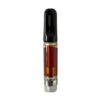
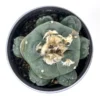
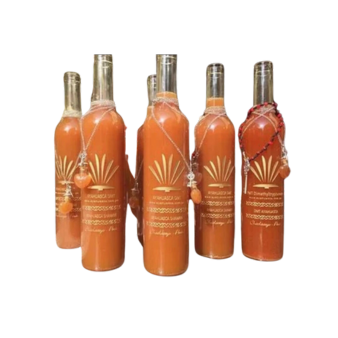


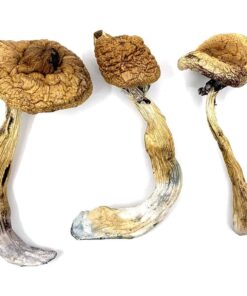

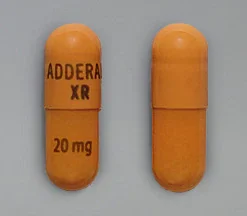
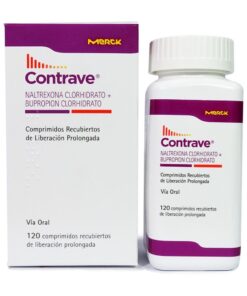

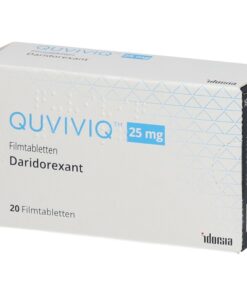

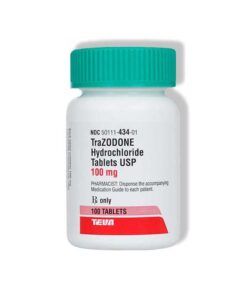


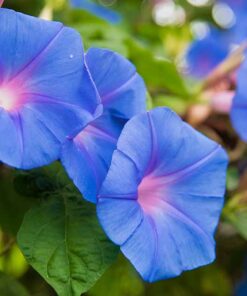
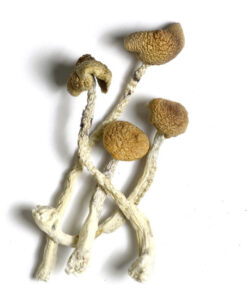
Reviews
There are no reviews yet.